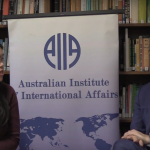Myths and misconceptions about organ donation

1,402 Australians received a lifesaving transplant in 2017 through the generosity of 510 deceased organ donors and their families who agreed to donation at the time of their loved one’s death. In 2017 the national program, launched in 2009, surpassed 10,000 transplant recipients. It’s a simple process to register for the donor scheme, one that can be done online in a matter of minutes.
However, research by the Organ and Tissue Authority suggests that a range of common myths and misconceptions are holding Australians back from pledging to donate organs when they die or discussing organ and tissue donation.
Access to organ donation and transplantation is vital in the provision of quality health care, especially when it can mean the difference between life and death. One organ and tissue donor can transform the lives of 10 or more people.
The chance to save lives is the greatest motivation for people becoming organ and tissue donors, however 44% of Australians have not made a decision about organ and tissue donation and 40% have not discussed it with their loved ones.
Before making an informed decision about organ and tissue donation, it’s important that people ‘discover the facts.’
MYTH: It’s better to just let my family decide at the time
FACT: If you want to become an organ or tissue donor – you need to tell your family.
A main reason that families decline donation is because they simply don’t know what their loved one wanted. Families that have discussed and know each other’s donation decisions almost always say ‘yes’.
Almost all donor families say that donation provided them with comfort in their loss and their decision was so much easier because they knew what their loved one wanted.
MYTH: It’s my choice – I don’t need to discuss it with my family
FACT: Your family needs to know. They will be asked to confirm your decision.
Families play a crucial role in the donation process because they are asked to confirm the donation decision of their loved one. The family will be involved in each step of the donation process and be asked to provide vital health information – even if you have registered your decision.
If you’ve decided to become a donor, you need to register your decision on the Australian Organ Donor Register. Most importantly you need to discuss your decision with your loved ones. Prepare your family so that they are comfortable being part of the process.
MYTH: Organ and tissue donation is against my religion.
FACT: Almost all religions support organ and tissue donation as an act of compassion and generosity.
Christianity, Islam, Buddhism, Hinduism and Judaism all support organ and tissue donation. Very few religions do not.
40% of Australians don’t know if their religion supports organ and tissue donation, and 20% of families that declined donation in 2014 did so out of religious or cultural concerns. Australians need to know that the organ and tissue donation process can accommodate religious and cultural end of life requirements.
MYTH: I’m too old to be an organ and tissue donor.
FACT: Age is not a barrier – people over 80 have become organ and tissue donors.
The majority (78%) of Australians aged 65+ years are willing to donate organs and tissues, yet 37% assume they are too old to be considered for organ and tissue donation. People in their 70’s and 80’s have saved the lives of others through organ and tissue donation. Don’t rule yourself out – count yourself in!
Each potential donor is assessed on an individual basis. There is every possibility you may be able to donate your organs or tissues.
MYTH: I’m not healthy enough to donate because of my lifestyle choices.
FACT: You don’t have to be in perfect health. People who smoke, drink or don’t have a healthy diet can still donate.
7 in 10 Australians wrongly believe you have to be very healthy to be an organ and tissue donor. This increases to 8 in 10 for young adults aged 18-29 years. There’s every chance that some of your organs and tissues may be suitable for donation. Don’t rule yourself out – count yourself in! The determining factors are where and how a person dies, and the condition of their organ and tissues.
MYTH: Organ and tissue donation disfigures the body.
FACT: Organ donation is specialised surgery and does not disfigure the body.
Nearly 1 in 3 Australians fear that organ and tissue donation leaves the body mutilated and disfigured. This increases to nearly half of all young adults aged 18-29 years.
However organ and tissue retrieval is performed by highly skilled health professionals. The surgical incision made during the operation will be closed and covered as in any other operation and will not be visible beneath the person’s clothes.
The donor’s body is always treated with dignity and respect and the family can still have an open casket viewing if desired.
MYTH: If I have registered as a donor, doctors won’t try as hard to save my life.
FACT: The doctor’s first priority is always to save your life.
20% of Australians fear that a doctor may not try as hard to save their life if they are registered as an organ or tissue donor. This increases to 35% for young adults aged 18-29 years. Saving your life is the absolute priority of medical staff – health staff, doctors and nurses work incredibly hard to save people’s lives.
Organ and tissue donation is only considered when it’s absolutely clear that the person has died or that death is inevitable, at which time the Australian Organ Donor Register will be checked.
MYTH: Enough people become donors so I don’t need to think about it.
FACT: Donation is a rare event – only 1 – 2% of hospital deaths allow for organ donation.
Approximaely 1,400 people are on transplant waiting lists at any one time. They are counting on every potential donor having decided and discussed that decision with their family. One organ and tissue donor can transform and save the lives of many.
Fewer than 1-2% of people who die in hospital can become an organ donor. Most of these rare deaths are sudden and unexpected with the patient dying in a hospital Emergency Department or Intensive Care Unit on a ventilator.
To optimise every potential organ donation we need every Australian family to decide and discuss their donation decision with loved ones.
MYTH: Enough people donate so that if I or a loved one ever needed a transplant, we could get one.
FACT: Approximately 1,400 people are on transplant waiting lists at any one time. Sadly some die waiting for a transplant.
Most people who are unwilling to become a donor say this would change if they or a family member needed a transplant. If we as a community expect to receive a transplant, then we as a community need to be prepared to donate.
Everyone over the age of 16 can decide and register their decision to donate online and should also discuss their decision with their loved ones to ensure their support. Everyone can join the mythbusting conversation online, using the hashtag #DiscoverTheFacts

Open Forum is a policy discussion website examining the social, political, economic, cultural and environmental issues of today. We welcome contributions and invite you to follow us on Twitter, Linkedin, Federated Press and Vivaldi Social. We #StandwithUkraine.















Alan Stevenson
April 20, 2018 at 1:10 pm
Maybe we should teach this subject in schools and ask the various religious leaders to step up and communicate better with their congregations. We could also include the idea of donating our bodies to science. I find the creed that we believe in the resurrection of the body to be utterly unacceptable in this era when we know our sun will eventually die after engulfing the Earth.